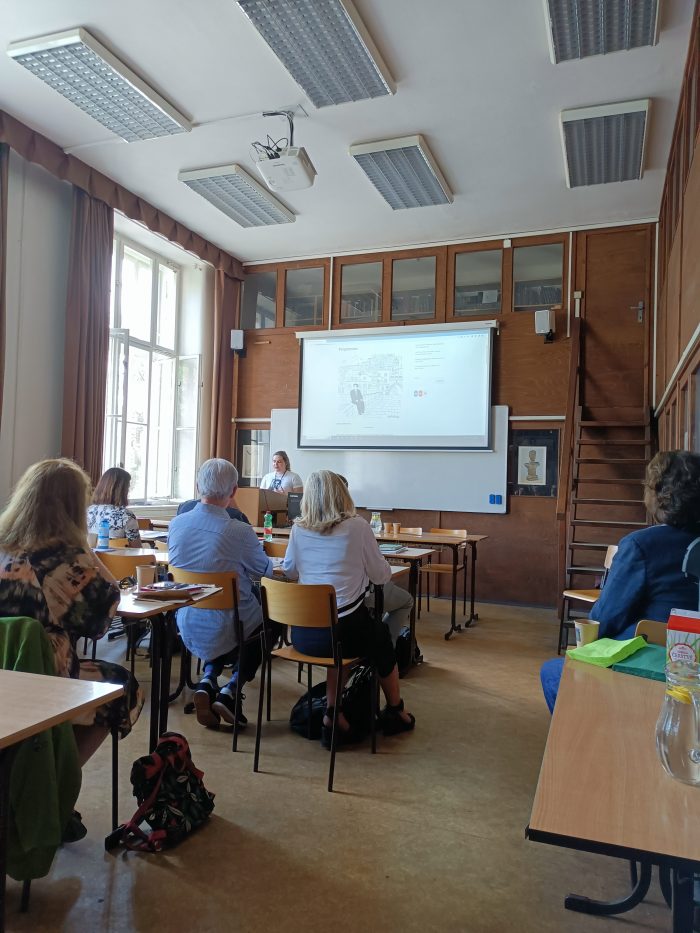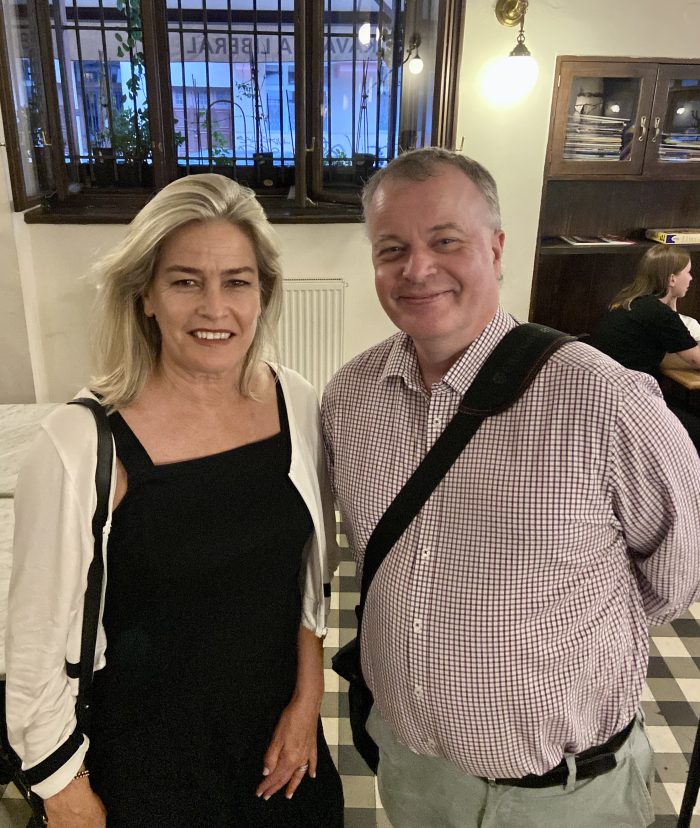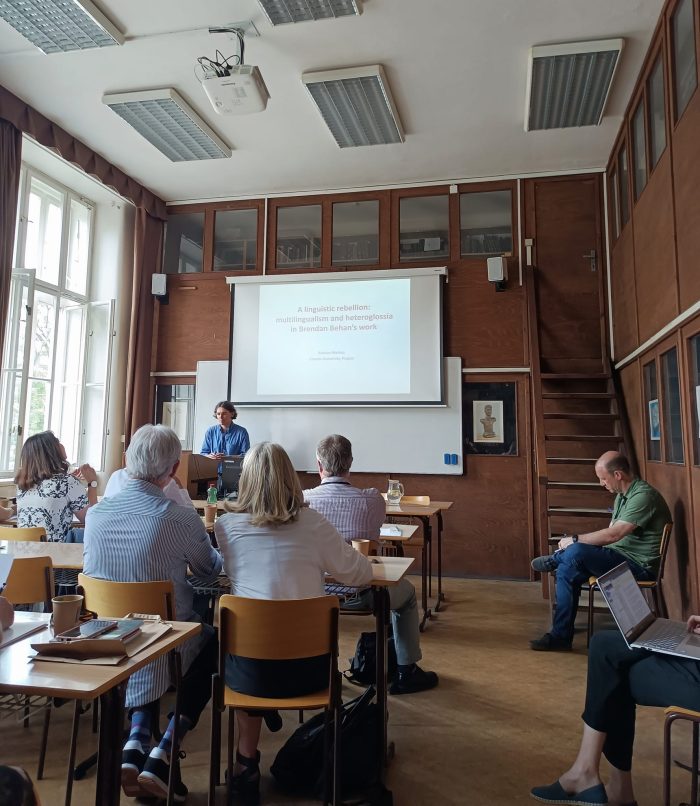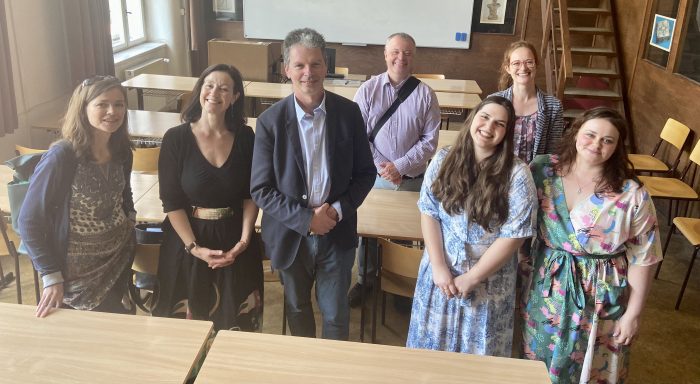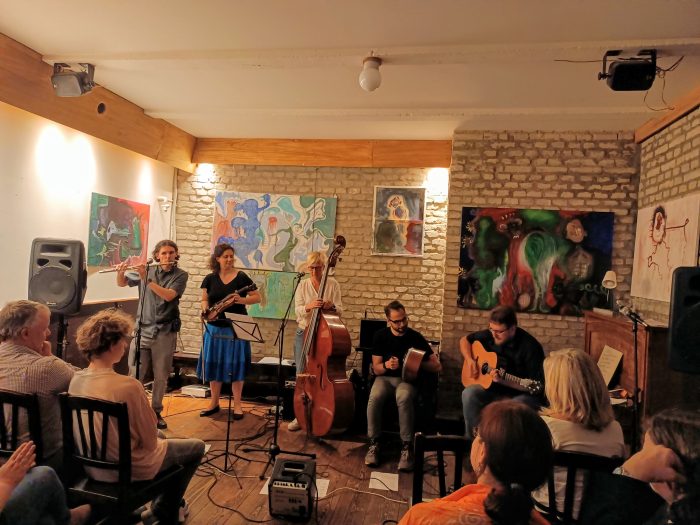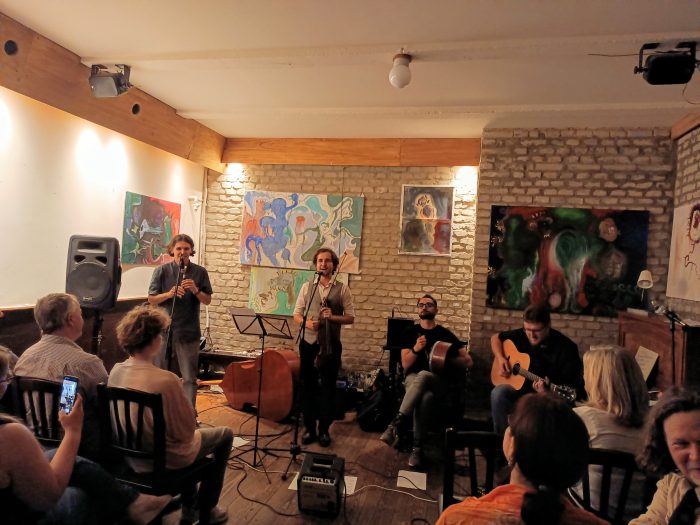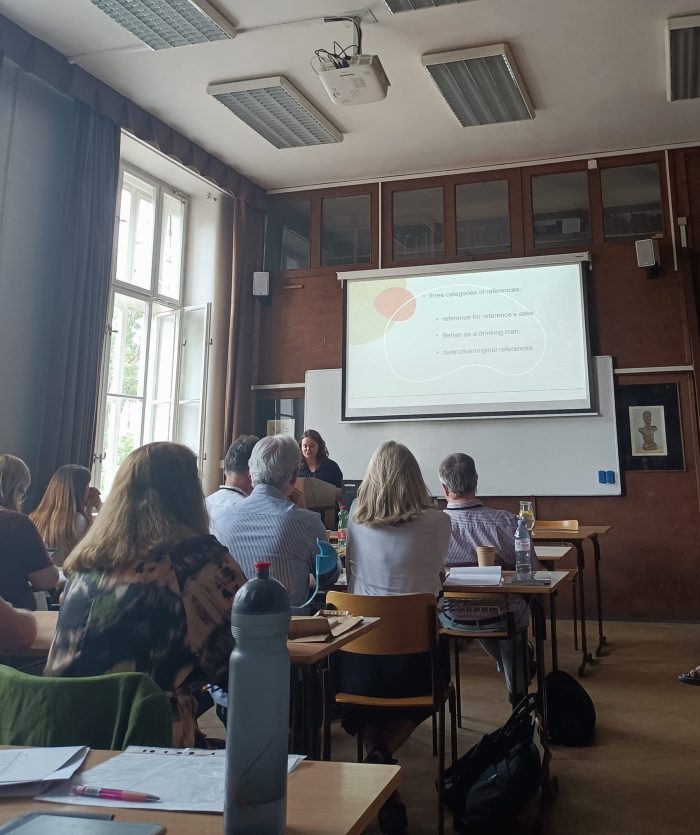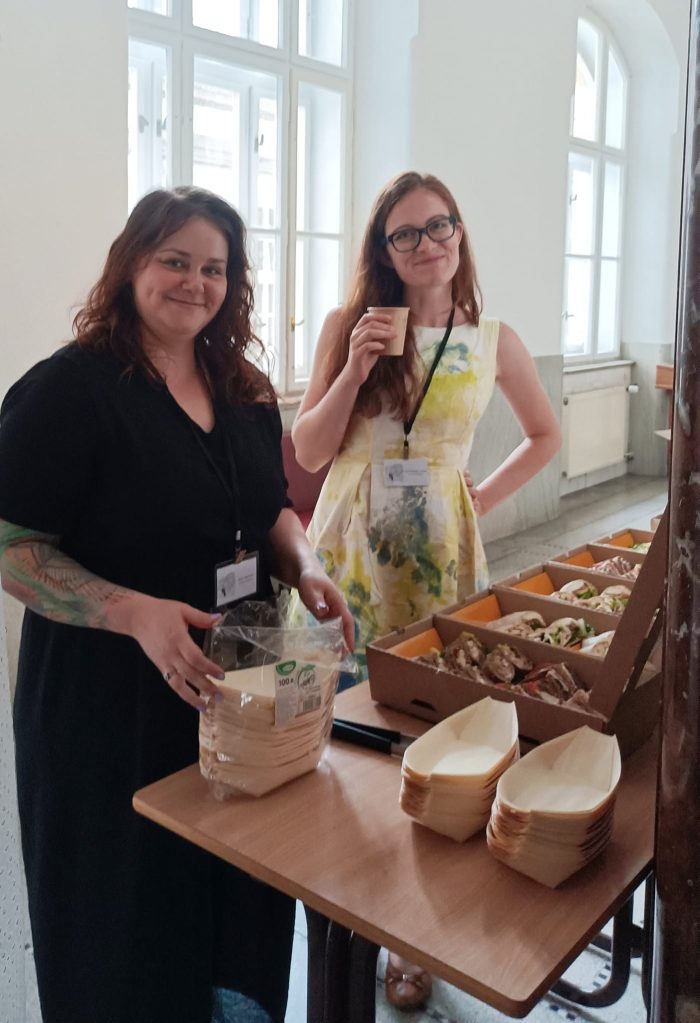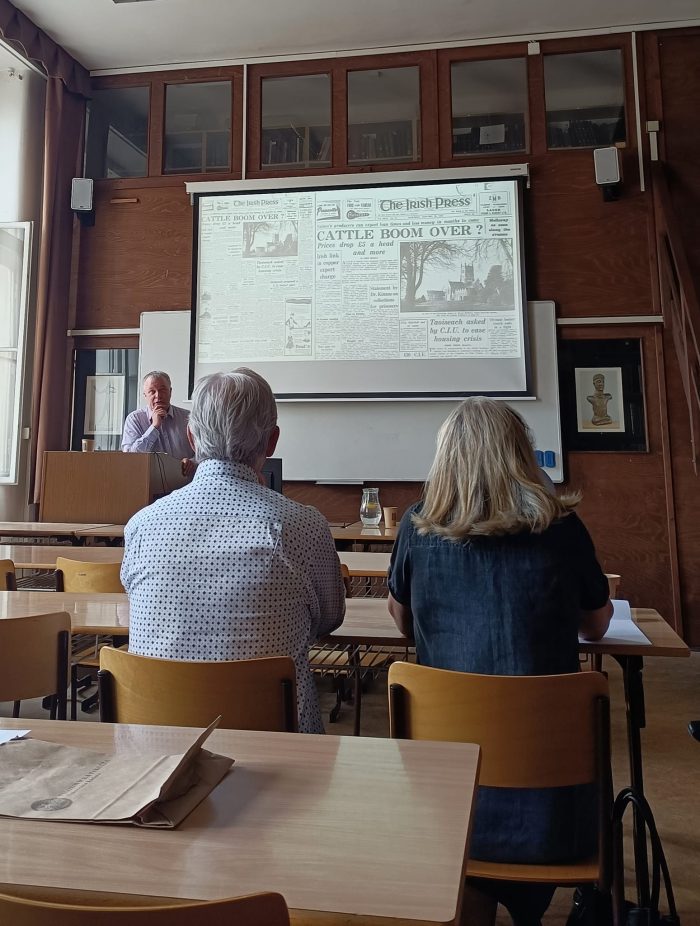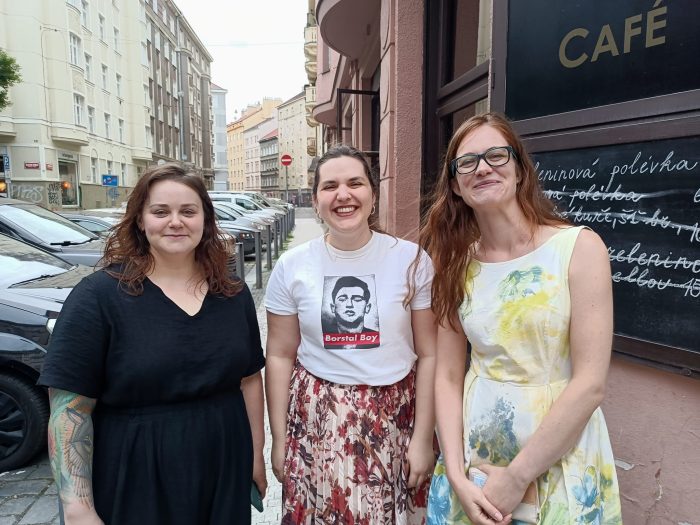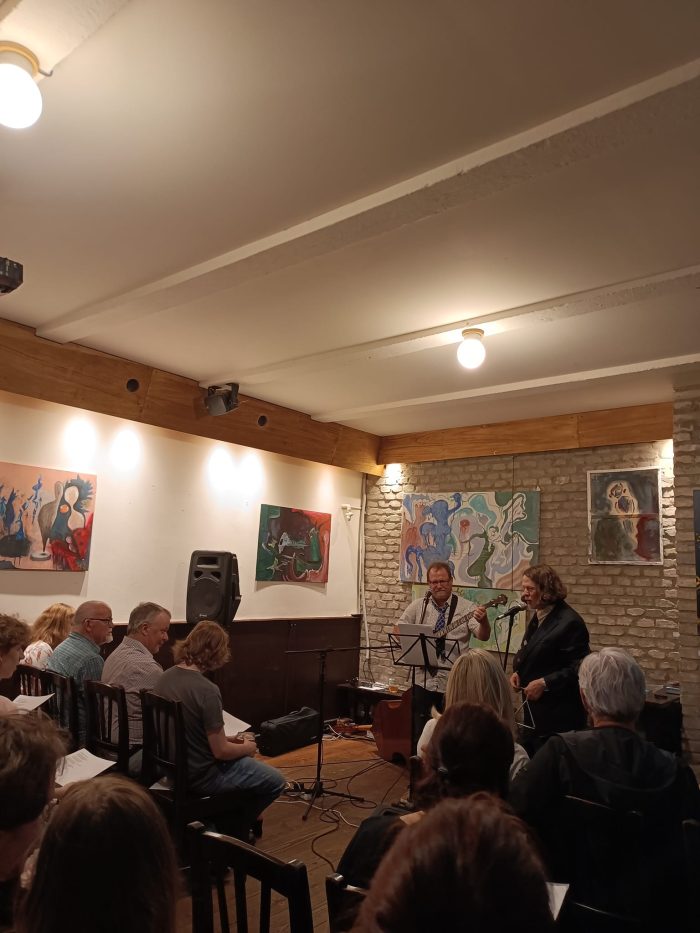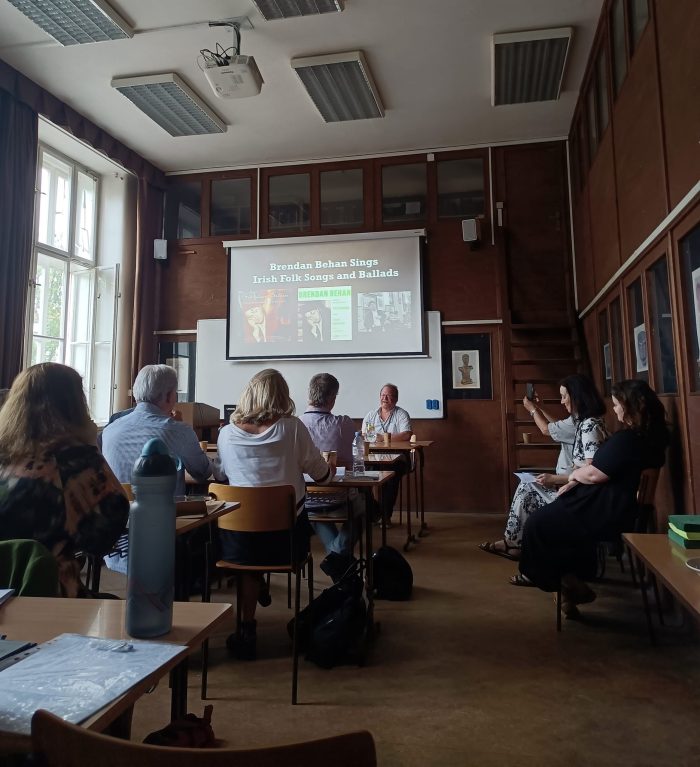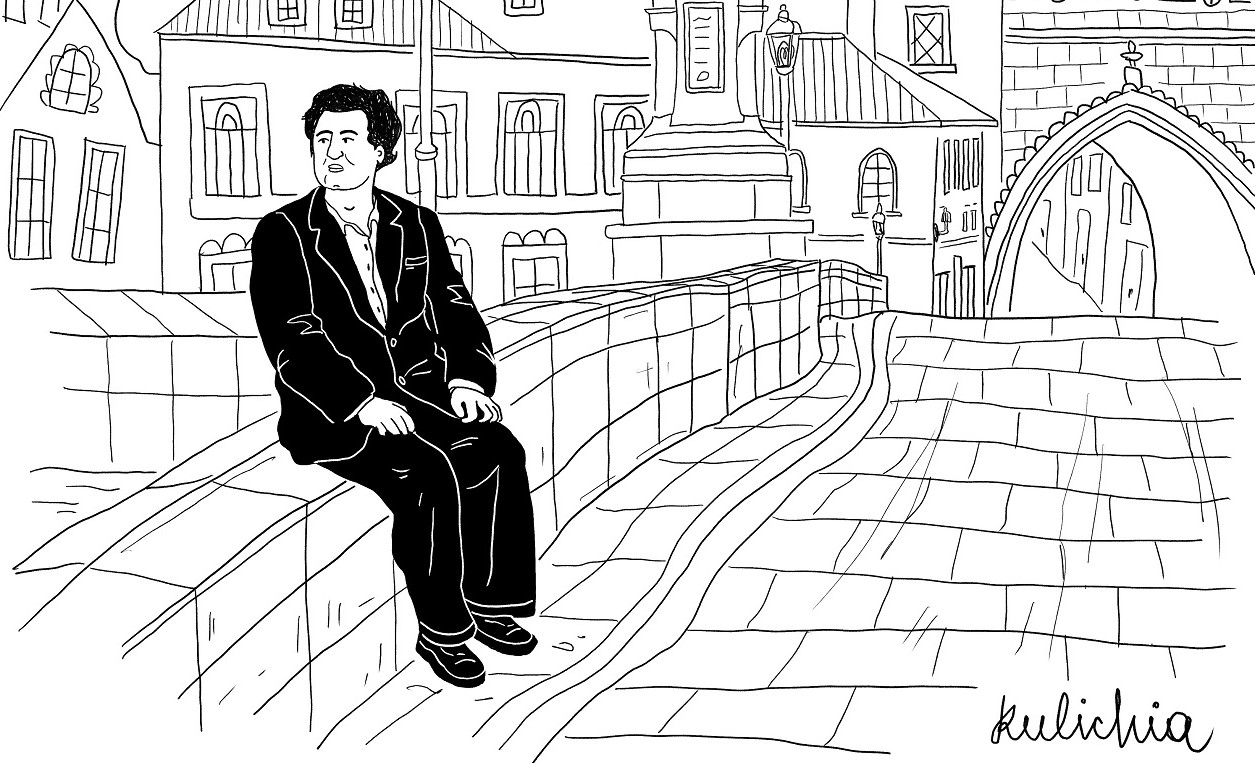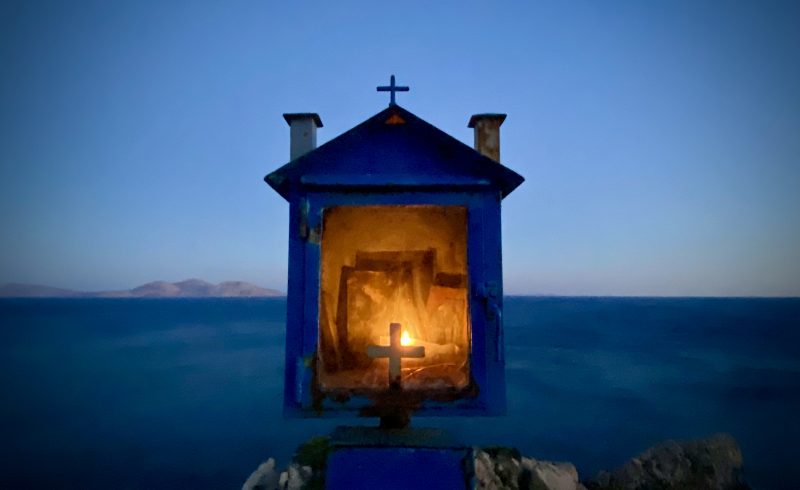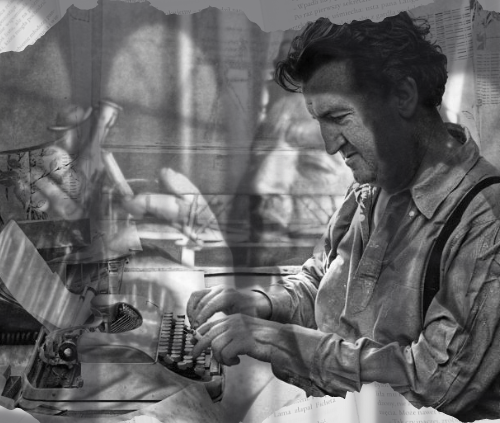The principal thing to do in this world,
is to get something to eat and something
to drink and somebody to love you.
Brendan Behan’s New York
February 9, 2023 marks 100 years since the birth of Irish writer, playwright and rebel Brendan Behan. The myths surrounding the author start with his very first days on earth, as becomes clear in Michael O’Sullivan’s seminal biography Brendan Behan: A Life:
Late winter 1923; outside Kilmainham Jail, Dublin. A young woman, clutching a baby, strains towards the top row of cell windows. […] At last, she sees the face she is looking for: a man comes to the window and catches a first glimpse of his new-born son. This stock-in-trade tableau of revolutionary melodrama was to prove prophetic for the baby in question.[1]
The man looking down at his wife and son through a prison window was, of course, Stephen Behan, the man in whose footsteps his son Brendan would soon follow, in more ways than one. Not only did he train as a housepainter like his father, he also aimed to become a republican revolutionary like him – an aspiration that would first land him in gaol aged only sixteen. Both his illustrious family history and the dramatics of his life, fictionalised variously in his works, helped to create the larger-than-life character of Brendan Behan. The boisterous persona he showed the public and his too-early, alcohol-related death cemented the image the world has, to this day, of Brendan Francis Aidan Behan.
I first discovered Behan in the Dublin Writers Museum, now sadly closed, when I was still a teenager. Reading the plaque underneath the then still unfamiliar name and face, I learned that he had been arrested at a young age for participating in an IRA bombing campaign. To my teenage mind, this made the author noteworthy. Back home in Austria, I bought a copy of Borstal Boy, my first encounter with Behan’s work. At the time, my English was not yet good enough to grasp the nuance of his writing, and I was left immensely confused at the use of the word “china” to refer to a friend.
Yet, certain passages of the autobiographical novel stuck with me. So much so, that I returned to Behan in my undergraduate degree, then again when it was time to write my master’s thesis. Only then did I learn that “china” is cockney rhyming slang, derived from “china plate” and therefore meaning “mate.” My thesis focused on Behan’s prose writings, and even after working with the texts for such a long time, I still like to return to his insightful short stories, the incredible volume that is Borstal Boy, and even the often incoherent ramblings of the “talk books,” which were shaped into readable material by one of the many great women of Behan’s life, Rae Jeffs. Which is not to say that I do not appreciate The Quare Fellow and The Hostage, the plays that made Behan known far beyond the limits of his native Dublin and that brought him fame, but also incredible loneliness.
It is Behan’s unfinished works, though, the fragments published in a number of collections in a desperate effort to show more of his talent, that are the most striking. It is them, after all, that remind us that the man had so much potential, so much still to give. He may have been great, greater even than he already was at the still so young age of 41. Had he not met his untimely death, he might now be remembered more for being one of Ireland’s great writers, rather than as the stage Irishman come to life that many have characterised him as.
Whole books have been dedicated to the fact that Behan’s public persona overshadowed his writing, his famous quote never far from any mention of his alliterative name: “I’m a drinker, with a writing problem.” How true it rings to anyone who has read his oeuvre, who has wished for more of his writing to magically appear. Behan’s favourite pastime, the drink, voided the isolation fame had brought, it let him return, if only for a moment, to the close-knit, pub-going community of his childhood. But it also turned his writing from a natural impulse, born out of hard work and raw talent, to a laborious task that was, in the end, too much. His writing became a problem.
Identity was important to Behan both in his writing and in his life. A self-professed daylight atheist, he struggled throughout his short life to come to terms with the many elements of his self: his nationalism, his religion and sexuality, his class consciousness, his socialism, and his desire to be appreciated both at home and abroad. Derek Hand indicates that Behan was “destined to be profoundly misunderstood in the one place where he want[ed] desperately to be understood: his home.”[2] Among the reasons for this lack of recognition was the fact that he was conceived as embodying a bad example of an Irishman. John Brannigan considers: “Behan’s […] alcoholism, exuberance and profanity perhaps offended the sensibilities of a modernising, middle-class Ireland, eager to show the world the signs of its maturity and respectability.”[3] His views and personal choices, thus, influenced the way in which his writing was perceived. In most of his prose writing, Behan himself blurred the lines between fiction and reality, ultimately contributing to the myth-making that later led to his work not being taken as seriously as it deserved.
To move beyond the myth is to read the work. And throughout Behan’s oeuvre it is empathy that shines through as the strongest of reasons as to why his writing is still relevant today, one hundred years after the author’s birth. Behan may be on many people’s minds today, as a Dubliner, a drinker, a person perhaps to poke fun at for his failed career as a rebel – but he is on my mind today as a man who fought demons all his life and finally succumbed, leaving us longing for more, but always able to turn back to what is there: a handful of texts that prove time and time again to be pertinent, insightful, layered and to give, with every reread, another glance into a brilliant mind.
Even though Behan’s oeuvre is necessarily limited, many aspects of it remain unexplored. This is something that the Prague Centre for Irish Studies’ upcoming conference “Behan at 100”, taking place on June 23-24, intends to remedy. We are looking for contributions that shed new light on the study of Brendan Behan, his works and life. This includes discussions of his lesser-known works such as The Scarperer, which offers an interesting treatment of identity or the Irish Press columns that showcase Behan’s unique wit and prejudice-free approach to a menagerie of characters. Other issues that could be discussed include:
- the queering of Behan’s writing
- the Behan family made up, to this day, of artists, rebels, and writers
- the many literary works written not by but about Behan, for instance Jack Harte’s The Laughing Boy and Janet Behan’s Brendan at the Chelsea
The conference does not necessarily limit itself to Behan alone; there are sure to be many connections between Behan and his predecessors, contemporaries and those following in his wake. Authors that could be explored through the lens of their influence on Behan or his on them include James Joyce, Sean O’Casey and, more contemporaneously, Pat McCabe.
Abstracts may be sent to brendanbehan100@gmail.com until March 5, 2023.
[1] Michael O’Sullivan, Brendan Behan: A Life (Dublin: Blackwater Press, 1997) 3.
[2] Derek Hand, “Brendan Behan’s Borstal Boy: The Public Persona and the Delicate Art of Deceit,” Reading Brendan Behan, ed. John McCourt (Cork: Cork University Press, 2019) 20.
[3] John Brannigan, Brendan Behan: Cultural Nationalism and the Revisionist Writer (Paperback reprint, Dublin: Four Courts Press, 2014) 22.
